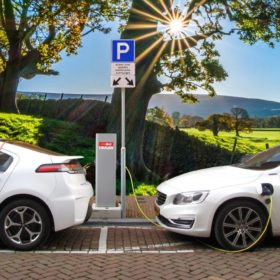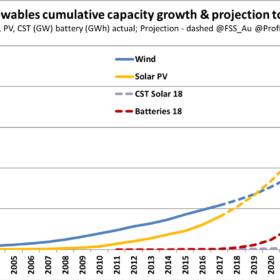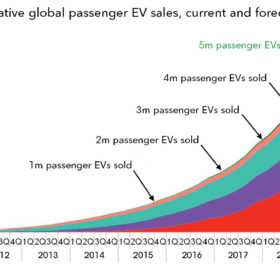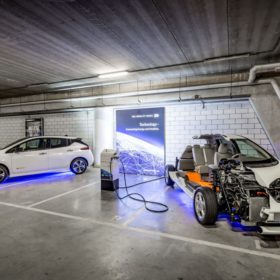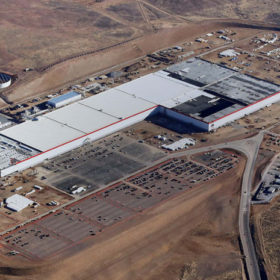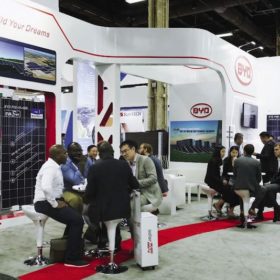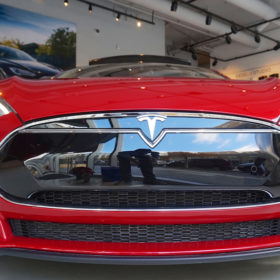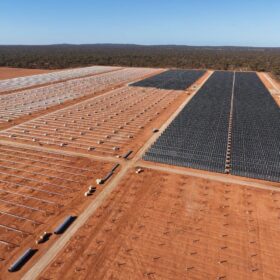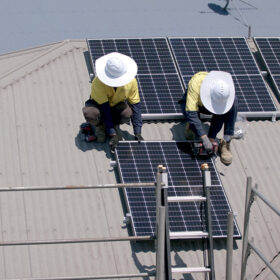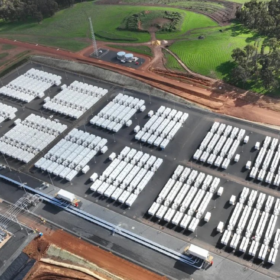EVs could become key to renewables uptake and world’s largest source of battery storage
For renewables to claim a more sizable share of the global energy mix, the adoption of energy storage would need to pick up pace and the rapidly increasing size of the EV fleet will offer a scalable way to ramp up such access, says Fitch Solutions.
The least wrong – rapid change in the energy station difficult to predict
While much has been made of the ‘trilemma’ facing the Australia electricity network, Ray Wills from Future Smart Strategies argues that rapid change of energy technology, business models and social changes is resulting in rapid and difficult-to-predict changes.
Global EV sales hit 4 million, soaring market sees next million in May 2019
While it took 60 months to reach the first million electric vehicle (EV) sales, in late 2015, it took the fourth million just six months. China is driving this development. Meanwhile, as first generation EVs batteries are reaching their end-of-life, interest in second-life use cases is growing. The volume of retired EV battery packs is set to be 108 GWh by 2029 – representing a third of the expected storage capacity market at that time.
How EVs will transform our grids, or the death of the combustion engine
The driving force behind the innovative energy storage system installed at Amsterdam’s John Cruiff ArenA in the Netherlands, The Mobility House (TMH), talks to pv magazine about the death of the combustion engine, and how electric vehicles (EVs) are presenting both strong business cases, and unparalleled levels of flexibility via decentralized intelligence – blockchain technology – for electricity grids around the world.
Panasonic mulls further investment in Tesla battery gigafactory as shortages loom
The suggestion of additional investments beyond the $1.6 billion follows reports of battery cell shortages as Tesla’s Model 3 picks up production. It is unknown what impacts this will have on Tesla’s stationary storage business.
Australian blockchain software to track EV carbon offsets in Silicon Valley
Perth-based blockchain startup Power Ledger has announced its first carbon credit project as part of its partnership with Chicago-based startup Clean Energy Blockchain Network and in collaboration with California’s municipal utility Silicon Valley Power. The company’s platform will manage credits generated by the use of solar energy in electric vehicle charging.
BYD signs 75MW supply deal in Australia
The Chinese technology firm has inked an agreement with EPC provider Biosar for a solar farm in Queensland, estimated at around US$ 30 million – a significant deal for the company’s thriving solar PV division.
E-car conflict highlights Liberal Party chasm on clean technology
Electric cars have emerged as a new battle ground within the federal Liberal Party, as it tears itself apart on even the most modest of pronouncements from the Energy Minister.
